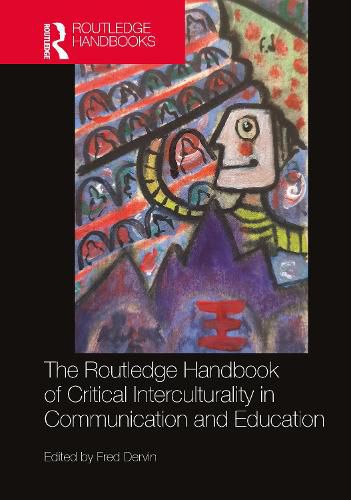Readings Newsletter
Become a Readings Member to make your shopping experience even easier.
Sign in or sign up for free!
You’re not far away from qualifying for FREE standard shipping within Australia
You’ve qualified for FREE standard shipping within Australia
The cart is loading…






This Handbook is the first comprehensive volume to focus entirely on the notion of interculturality, reflecting on what the addition of the adjective 'critical' means for research and teaching in interdisciplinary studies.
The book consists of 35 chapters, including a comprehensive introduction and conclusion. It aims to present current debates on critical interculturality and to help readers make sense of what the label implies and entails in global and local contexts, especially (where possible) beyond dominant scholarship and pedagogical practices. The chapters interrogate the use of terms in different languages to discuss interculturality, drawing on recent literature from as many different parts of the world as possible. Some contributors also problematise their own autobiographical engagement with critical interculturality in their chapters.
The book will be of interest to Master's and PhD students in education, communication, and intercultural studies who wish to develop their knowledge of critical interculturality. Established researchers in these fields will also benefit from this invaluable and original source of essential reading.
$9.00 standard shipping within Australia
FREE standard shipping within Australia for orders over $100.00
Express & International shipping calculated at checkout
This Handbook is the first comprehensive volume to focus entirely on the notion of interculturality, reflecting on what the addition of the adjective 'critical' means for research and teaching in interdisciplinary studies.
The book consists of 35 chapters, including a comprehensive introduction and conclusion. It aims to present current debates on critical interculturality and to help readers make sense of what the label implies and entails in global and local contexts, especially (where possible) beyond dominant scholarship and pedagogical practices. The chapters interrogate the use of terms in different languages to discuss interculturality, drawing on recent literature from as many different parts of the world as possible. Some contributors also problematise their own autobiographical engagement with critical interculturality in their chapters.
The book will be of interest to Master's and PhD students in education, communication, and intercultural studies who wish to develop their knowledge of critical interculturality. Established researchers in these fields will also benefit from this invaluable and original source of essential reading.